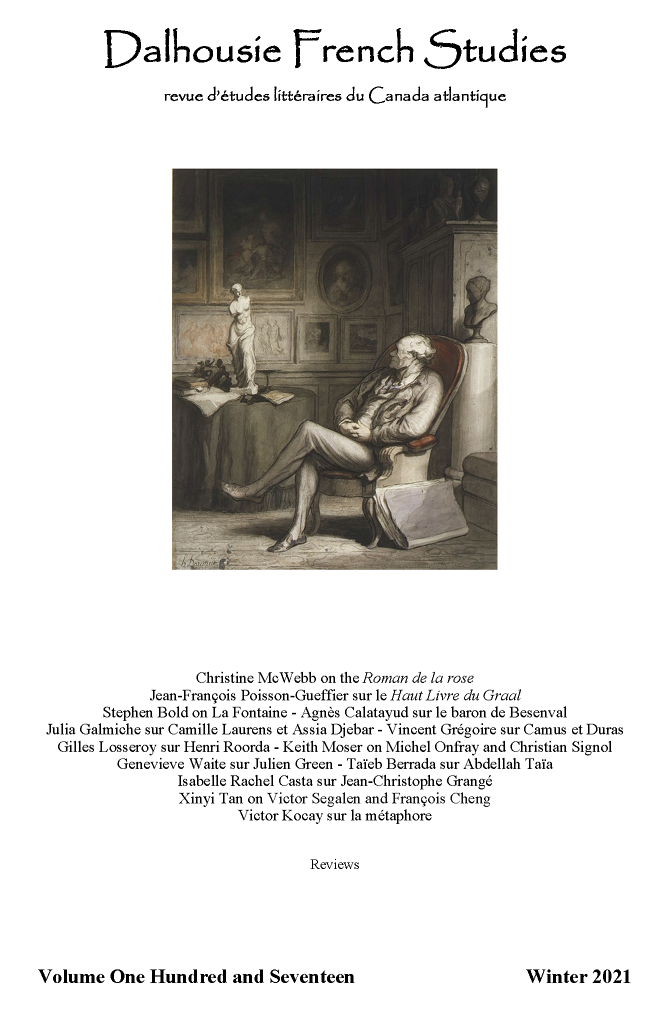From Transformative Travels to Translingual Poetics: the "Ultime voyage" of Victor Segalen and François Cheng
Résumé
François Cheng and Victor Segalen are widely acknowledged for their common role of “cultural ambassador” between China and France. However, according to Jean Mouttapa who wrote the preface for Cheng‘s book L‘Un vers l‘autre. En voyage avec Victor Segalen (2008), there exists a “spiritual affinity” between the two authors that connects them in a fundamental way. Focusing on this unusual bond, this article examines how the dual destinations of travel – lieu (Other/Elsewhere) and milieu (Self/Home) – are represented in two poetic creations, namely “Perdre le Midi Quotidien” by Segalen and “Ultime voyage” by Cheng. At the intersection of French and Chinese, the travelers-poets trace and translate the courses of their internal progress through their physical displacements. Drawing on essential concepts from Segalen‘s theory such as the Divers and the Exote, my analysis reveals the extent to which Segalen and Cheng‘s translingual poetics serve as a powerful vehicle to display and disseminate their positive view of the Self-Other bond.
François Cheng et Victor Segalen sont reconnus pour leur rôle commun d‘« ambassadeur culturel » entre la Chine et la France. Cependant, d‘après Jean Mouttapa, auteur de la préface du livre de Cheng L‘Un vers l‘autre. En voyage avec Victor Segalen (2008), il existe aussi entre ces deux auteurs une « affinité spirituelle » qui les relie de manière fondamentale. Se concentrant sur ce lien particulier, cet article examine comment les doubles destinations de voyage – lieu (Autre/Ailleurs) et milieu (Soi/Ici) – sont représentées dans deux créations poétiques : « Perdre le Midi Quotidien » de Segalen et « Ultime voyage » de Cheng. À la croisée du français et du chinois, les voyageurs/poètes dessinent et traduisent les cours de leurs évolutions intérieures à travers leurs déplacements physiques. S‘appuyant sur quelques notions essentielles de l‘exotisme ségalenien, comme le Divers et l‘Exote, mon analyse révèle la mesure dans laquelle les poésies « translingues » de Segalen et de Cheng fonctionnent comme un véhicule efficace pour exposer et diffuser une image positive de la relation entre le Moi et l‘Autre.


